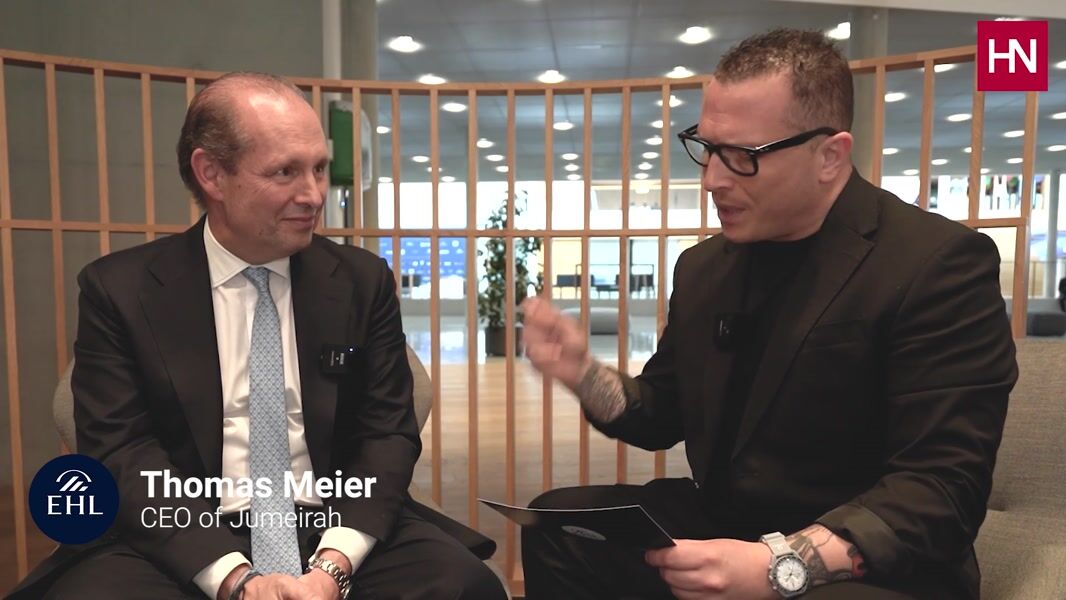
At the EHL Open Innovation Summit in Lausanne, we had the chance to sit down with Thomas Meier, CEO of Jumeirah Group, for an open conversation about the future of luxury hospitality. Our discussion touched on how artificial intelligence is helping to free up teams for more meaningful guest interactions, why true personalization must stay human and contextual, and how innovation can thrive without losing the timeless rituals that define luxury service.
Which technology or innovation do you believe will most reshape the hospitality industry over the next 5 to 10 years?
If I had a crystal ball, I might not be sitting here, but I believe artificial intelligence will significantly change how we operate. Especially in back-of-house functions like accounts payable, procurement, and HR processes, AI can automate repetitive tasks. This does not mean reducing headcount. On the contrary, it allows us to shift those colleagues into guest-facing roles, where they can create memorable experiences. AI can handle the invoice. It can place the chef’s order. But the value lies in the human connection, in the welcome, in the interaction. That is what guests remember. In markets with a shortage of talent, AI is also an opportunity to free up people for more meaningful roles. So it is not about replacing people. It is about enabling them.
How do you see differences in the perception and use of AI between Europe and the UAE, where Jumeirah operates extensively?
There are indeed differences. What is remarkable in the UAE is how the government has embraced AI as a national priority. Since 2017, AI is considered a tool for progress across sectors. At Jumeirah, we have partnered with government entities to explore this. For example, we piloted facial recognition check-in. If you are a loyalty guest and have given your consent, you can now check in without showing a passport. But for us, luxury means choice. Maybe after a long flight you want to relax first, not go through facial recognition. Or maybe you are in a hurry and want a quick, seamless check-in. The same guest may have different needs depending on the moment. That is where technology should support, not dictate. That is how we define luxury.
How does Jumeirah approach personalization and hyper-personalization, especially during the check-in experience?
Hyper-personalization is the buzzword now, but we need to go back to the basics. As a receptionist, I am your host. I want to understand you. What can I do for you? That can be different every time you check in. The same guest is not the same person in the Maldives as they are in London. Once we understand that, we can personalize. It could be the scent in the room, the food, or the light. But it also needs to make sense in context. Maybe you always have mango juice in the morning, but in London in November that might not feel right. So we validate with you. It is not robotic. It is thoughtful. It is based on what we know, combined with the present moment. That is where the human element is essential. Technology helps, but it is our people who bring the experience to life.
How do you create a culture of innovation at Jumeirah without abandoning the rituals of luxury service?
I believe they go hand in hand. Innovation is not just about big investments or new tech. It can start with the basics. Are we doing them right? If the basics are in place, we can build on them. Innovation happens when colleagues are empowered to share ideas. It can be as simple as making a morning routine more efficient. You do not need an innovation council. You need a culture where ideas are welcome. Of course, for bigger initiatives that involve capital or startups, we assess them holistically. But every good idea starts with someone noticing something. That is innovation. It can come from anyone, at any level. It just needs to be explored and shared.
Please visit:
Our Sponsor
